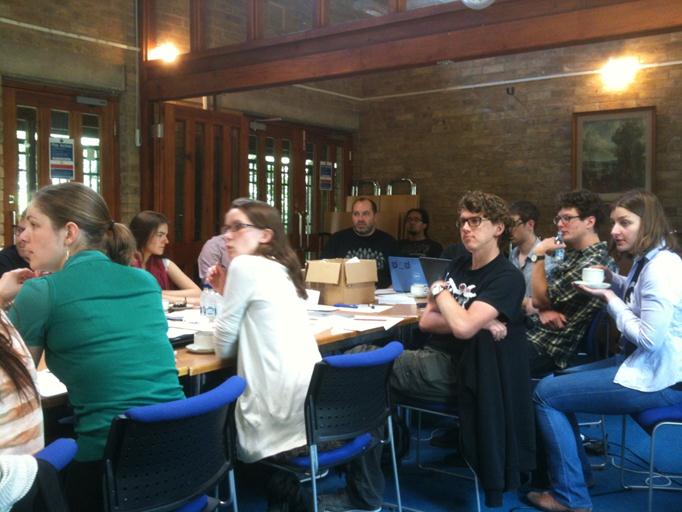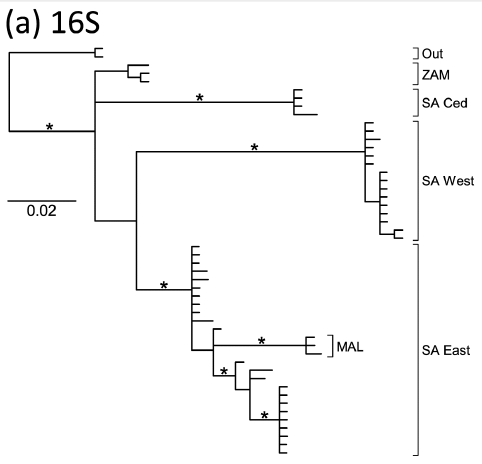I’d hoped to blog about something other than Open Access – such as developing intelligent software for reading the scientific literature (and I shall). However things have niggled away and I have to get them and other ideas out before I can go back to writing code .
- I have been invited as an OKF representative to a (invitation-only I think) meeting run by the Royal Society “Workshop on ‘Revaluing Science in the Digital Age’ 2-4 September 2012 at Chicheley Hall (Royal Soc). No idea how long I speak for, but I am expected to contribute a “provocation”. No doubt more later.
-
A recent post (http://lists.okfn.org/pipermail/open-access/2012-July/000766.html ) to the OKFN open-access list [0] by Katie Foxall of ecancer.org. Katie runs a discipline/community-based journal which is toll-free and APC-free (in simple language anyone can read it for free and authors don’t have to pay charges). She writes:
I haven’t posted before but have been following the discussions [on OKFN open-access]with much interest and have founds the info and links provided by various people really useful. I run an open access cancer journal http://ecancer.org/ecms which has no author fees – we are currently mainly supported by charity funding but the journal has been growing at a great rate this year so I’m looking into accessing any funding that might be out there to support open access publishing. The reality is that we will have to start charging author fees at some point if we can’t get more funding and we really don’t want to do that as providing a free service for the oncology community is very important to us.
So does anyone know whether there is anything like SCOAP3 [the consortium for High Energy Physics publishing] in the field of medical publishing?
To many of us this sounds entirely natural and desirable – after all that’s how many journals started and – IMO – this often represents the best of science communication – a community-to-community process rather than the anonymous capitalist scholarly presses. So for me, part of the issue is whether #openaccess can solve Katie’s problem.
If we go to the traditional approaches “Green and Gold”) there are many words and some – but limited – progress. The publication of the Finch report and the RCUK policy on Open Access have engendered a huge amount of “debate” in the open access fora (such as the GOAL open access list http://mailman.ecs.soton.ac.uk/pipermail/goal/2012-July/thread.html ) and more recently and possibly more digestibly on Google+ http://t.co/h6p1Lb6F. Unfortunately much of this is politico-religious and revolves round “The Only Way Is Green” [1] and oh-no-it-isn’t “The Only Way is Gold”. (Hence the humpty-dumptyism of the title http://en.wikipedia.org/wiki/Portmanteau Gree-old). The “debate” consists of a lot of shouting and more recently withdrawal of cooperation: http://poynder.blogspot.co.uk/2012/07/oa-advocate-stevan-harnad-withdraws_26.html. (Summary – Stevan Harnad said one thing and then changed his mind and attacks the RCUK and Finch and with his fellow-thinkers me if I dare to post on GOAL).
So my starting point is that Green and Gold (besides being almost meaningless terms operationally – like “democracy” or “healthy”) have serious flaws and are not a solution to Katie’s problem. Why do I say that? (I remain a supporter of BMC and Gulliver Turtle and PLoS and IUCr and EGU).
The problem is that they are C19/20 solutions in the C21. They glorify the “article”. They are based on a very university-centric – and often arrogant – approach. They have very little scope for C21 (“Web 2/3.0”). There is no feeling of community if you publish a Gold article. There is no feeling of community in self-archiving a Green article. It’s a chore. They are often predicated more on glory-for-the-authors than communicating to the electronic world. The end result is an “impact factor” not a community of practice.
Contrast this with Open Street Map. http://www.openstreetmap.org/ . This creates top-quality up-to-date maps for the whole world – in many cases better than the existing commercial products. And for many years (and maybe still true) it didn’t even have a bank account. It has 250,000+ supporters who love doing it. The simple message – if you create a world community (not just an ivory-tower one) you can change the world.
Wikipedia has also done that. For that reason many academics hate and denounce it. “It can’t be good because it’s free and created by non-specialist volunteers. It has no peer-review” (wrong). It is against the laws of academia to create a volunteer-based high-quality zero-cash encyclopedia. Of course it’s not zero-cost now, and we have JimmyW’s face asking us to donate, but that’s C21.
So can this translate to community journals without Gre-old? I think we can and I think we should try.
To start I highly recommend reading http://blogs.law.harvard.edu/pamphlet/2012/03/06/an-efficient-journal/ – which gives a factual, readable, account of how a journal can be run with virtually no cash.
LeCun (editor of Journal of Machine Learning Research (JMLR), ) “The best publications in my field are not only open access, but completely free to the readers and to the authors.”
To supporters of the multi-billion dollar faceless publishing industry – like Kent Anderson of the Scholarly Kitchen – this is impossible.
I’m not entirely clear how JMLR is supported, but there is financial and infrastructure support going on, most likely from MIT. The servers are not “marginal cost = 0″ — as a computer scientist, you surely understand the 20-25% annual maintenance costs for computer systems (upgrades, repairs, expansion, updates). MIT is probably footing the bill for this. The journal has a 27% acceptance rate, so there is definitely a selection process going on. There is an EIC, a managing editor, and a production editor, all likely paid positions. There is a Webmaster. I think your understanding of JMLR‘s financing is only slightly worse than mine — I don’t understand how it’s financed, but I know it’s financed somehow. You seem to believe in fairies.
Anderson’s comments (and it’s worth reading the comment thread) read like a sceptic of heavier-than-air flight: “Publishing requires fees – it is theoretically impossible to run a no-fee journal”. Read how every time his “argument” is countered he plays-the-man-rather-than-the-ball (a soccer term). “You failed to fill in a tax return for the journal so this proves you cannot run a journal without fees”.
So to Katie my suggestions would be:
- Resist rushing into conventional solutions. You sell your soul if you involve a commercial publisher (look at all the “Society” publishers who are now controlled by for-profit publishers). [2]
- Look to collaborate with others. There is no reason why JMLR and ecancer shouldn’t share infrastructure development, for example.
- Be open (as you have been) and ask for help and advice. There is a lot going.
So reader, if you have a bright idea for how new methods in #scholpub can be developed bring them forward. And if you can help to develop new ways of running almost-cash-free journals I think there will be people interested in helping get this off the ground.
NOW I can get back to writing code
[0] The OKFN open-access list has much of its input from outside academia and has a collaborative and innovative approach.
[1] There is a reality program in the UK called http://en.wikipedia.org/wiki/The_Only_Way_Is_Essex often abbreviated to TOWIE. I don’t watch it and it has no other relation to Open Access other than the cadence of the title.
[2] In a later post I shall compare scholarly publishing to banks – both of course are highly respectable, ultra-efficient, scandal-free, publicly loved, high-value-providers and respected.




